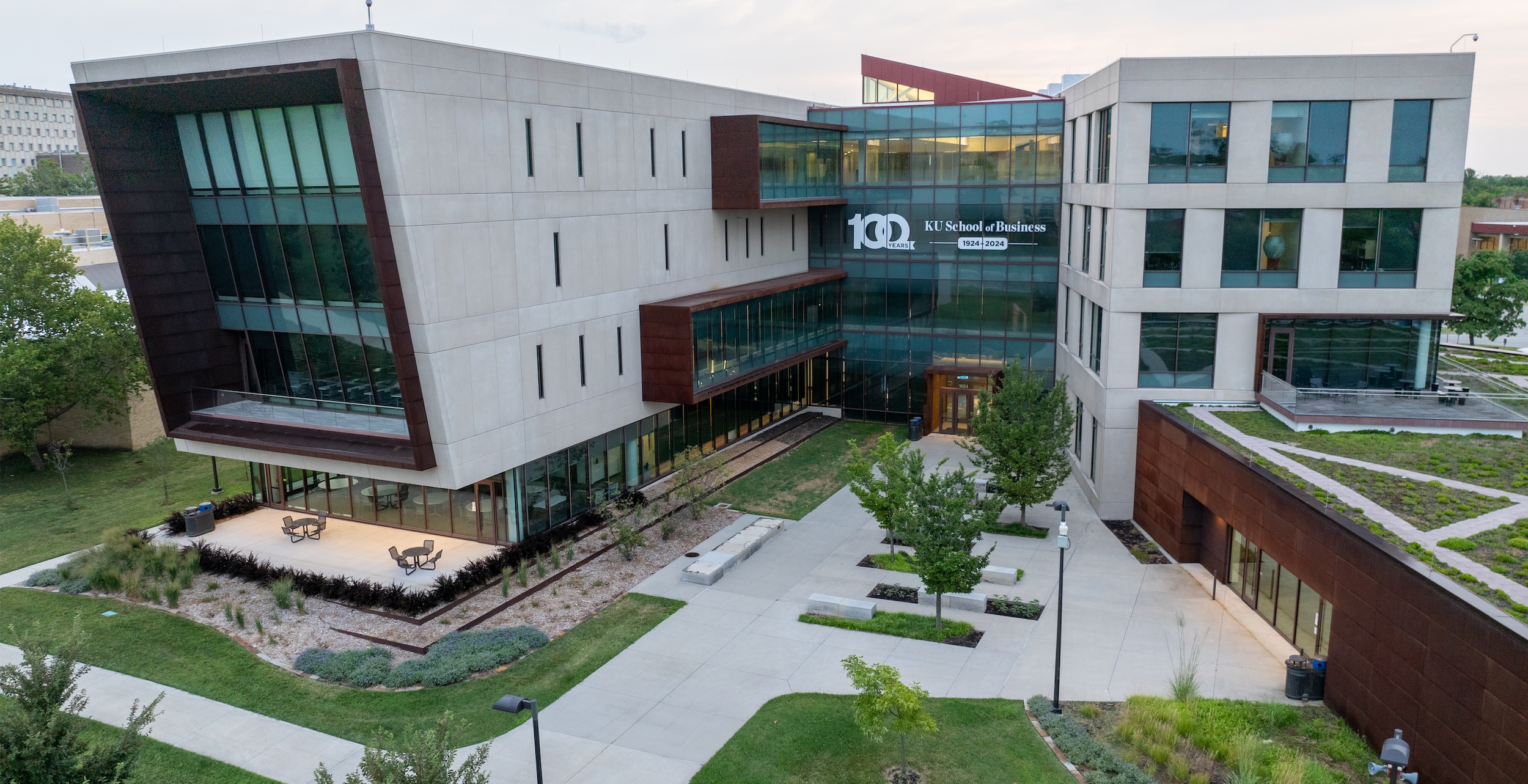
In spring 2024, Charlotte Tritch, lecturer and director of entrepreneurship degree programs in the Management and Entrepreneurship academic area, tasked her ENTR 490 Solving Wicked Problems class with a seemingly impossible problem to solve. Working with Lisa Dieker, Williamson Family Distinguished Professor in Special Education in the KU School of Education and Human Sciences, students began to address a complex and challenging societal problem: unemployment and underemployment for people with disabilities and how to build a data literacy-focused training program.
Tritch and Dieker first met outside of the classroom and worked together on a National Science Foundation grant for a small business that is inclusive on college campuses to help all students with the Universally Designed for Learning (UDL) format of data analytics. UDL is a teaching method that makes learning accessible through different ways to work with information and gain knowledge.
As they worked together, Tritch decided to make this a “wicked problem” for her class to examine how future business owners can think about future jobs accessible for all. From there, Dieker employed with her former university, the University of Central Florida, and students in its Inclusive Education Services (part of the Think College Inclusive Higher Education Network) and a KU student in the Transition to Postsecondary Education program as class consultants, to cross-collaborate with students in ENTR 490 to deliver solutions to a real-world problem.
“In other business and entrepreneurship courses, students usually get a business challenge and work as a team to do analysis, then make and present recommendations,” Tritch said. “For this course, students worked through a business challenge brought to us by the J Café. The critical outcome of the project was to design and develop a low-tech data literacy training framework that could improve employment outcomes for individuals with a variety of disabilities and support needs. What they learned can be used to develop a more high-tech version that could be scaled.”
Students worked in 10 teams of four people and were randomly assigned a different disability lens through which they were to approach the project for the semester. The teams were to create a training program to teach data literacy through a UDL lens so that employment opportunities were more inclusive of individuals with disabilities and employers could increase hiring options for positions while creating an improved business model for all.
Tritch encouraged her students to keep an open mind and be flexible as they learned and worked with complex and multifaceted challenges. They worked with mental models and systems thinking tools, learned about social enterprise, social entrepreneurship, the theory of change and watched “Hearts of Glass,” an award-winning documentary showcasing a vertical harvest local business supported by community restaurants to gain fresh produce year-round. This local business uses UDL principles to employ neurodiverse individuals, providing equal competitive wages for all employees.
Payton Pugh, a philosophy major with entrepreneurship and environmental studies minors, wasn’t quite sure what a “wicked problem” was when she first signed up for the class. She previously took a class with Tritch and was excited to find out.
“I found the whole concept so interesting,” Pugh said. “I was a bit confused at first about the class setup and what we were trying to solve, but then I saw how cool it was, especially collaborating between schools. We met with Lisa and got feedback and could incorporate the other school’s feedback and work on idea generation. I’d never worked on a concept like this before, and it was the most interesting and rewarding takeaway.”
Pugh found that group work was essential to making the class experience. The class allowed students to use a system thinking mindset and use their soft and hard skills to address a real-world problem.
“The professors made it a point to show that we are working with people in the real world, and it’s not always going to be easy,” Pugh said. “The group work and collaboration between universities made the experience. We had team contracts that outlined everything that we were doing and how things would look. It made us all on the same page and held us accountable. With those approaches, we could take the project and reshape what we knew before.”
At the end of the semester, groups presented their research and solutions to their assigned business challenge. Both Tritch and Dieker wanted students to walk away at the end of the semester knowing what an accessible world looks like for individuals with disabilities and to give them equal pay, employment and a voice in the job force. Together, they championed a collaborative process for students to work across disciplines to account for a new way of classroom learning.
“The standard model of past lectures and taking tests is gone, but so is teaching in silos,” Dieker said. “The world this generation is entering means new jobs are emerging daily, and their need to understand how to change, evolve and work across disciplines is critical. The need for higher education to model this disruption is essential. The initiatives at KU even focused on One KU and the surge towards competency-based education all align with leaving disciplines and traditional teaching and creating an evolved Jayhawk who will continue to rise toward this ever-changing world they will be shaping forever as a KU student and alumni.”
Strengthening communities at KU and beyond is one of the School of Businesses’ priorities in the current campus fundraising campaign with KU Endowment. For information on how you can help support the School of Business, please contact David Byrd-Stadler, Team Lead Business Development, at KU Endowment (785 832-7308).
Stay Up to Date on the Campaign
While we strive for perfection, typos happen. Please report them.
1891 Constant Ave, Lawrence, KS 66047 | PO Box 928, Lawrence, KS 66044 | 785•832•7400 | 800•444•4201